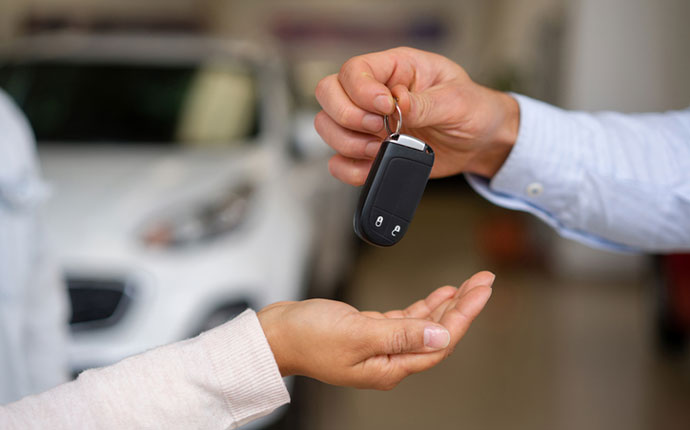“Hey, can I use your car to run a quick errand?”
If someone has borrowed your car or you’ve borrowed someone else’s to run an errand, you may have wondered how insurance works in these situations. What happens if someone else gets into an accident while driving your car? Will your car insurance cover damages?
Generally, car insurance follows the vehicle and not the driver, so your vehicle will be covered up to your policy’s limits if someone besides yourself borrows it and gets into a car accident. However, there are situations where the answer isn’t as straightforward. Let’s explore some factors that could affect a borrowed car’s coverage.
Does My Car Insurance Cover Someone That Borrows My Car?
As mentioned, car insurance will typically follow the vehicle. Because of this, your car will likely have protection if someone borrows it and gets into an accident. If an accident occurs, most states consider the auto insurance policy covering the vehicle as the primary insurance. This means the owner’s insurance will cover the damages caused even if the person borrowing the car has their own insurance policy. However, for an insurer to cover the accident, the borrower must not drive your vehicle regularly, must have your permission, and cannot be excluded from your policy.
If the above conditions are met, an insurance provider will likely cover damages someone causes while borrowing your car. Suppose your policy does not have enough coverage limits to cover all associated costs. In that case, the borrower’s insurance may act as a backup if needed.
The Difference Between Permissive and Non-Permissive Use
Whether or not the person using your car has your permission to do so plays a significant role in determining if your car insurance will cover them in an accident. Permissive use is when you give another driver permission to use your car temporarily. Most standard policies typically include permissive use accidents. Still, insurance coverages can vary greatly between insurers, so always double-check with your agent to confirm.
What happens if someone uses your car without your permission and crashes? This is referred to as non-permissive use and potentially auto theft. Because of this, most insurance companies will likely cover no damages if you do not have collision or comprehensive coverage.
Can You Exclude Drivers from Your Auto Insurance Policy?
When you sign up for an insurance policy, your insurer will typically ask that you list all licensed drivers in your household with access to your car(s) on your policy. However, some states allow you to exclude drivers in your household who will not—or aren’t allowed to—borrow your vehicle. You may choose to exclude drivers with unfavorable driving records to avoid higher rates. If someone is excluded from your policy and gets into an accident while driving your car, your insurance provider will likely deny any claims you attempt to file.
You must include drivers in your policy in the following states: Hawaii, Kansas, Minnesota, New York, Rhode Island, Vermont, Virginia, and Wisconsin.
How Does Borrowing Frequency Play a Role?
How often an individual borrows your car can also affect whether coverage will apply if someone else crashes your car. Insurance providers typically cover accidents under permissive use if the person borrowing your vehicle uses it infrequently. However, if they borrow your car often and live in the same household, your claim could be denied since the driver should’ve already been listed on your insurance.
Consider the following example. Let’s say you have a caretaker that uses your car every so often to pick up your children from school on the days you’re unavailable. Although the person does not live with you, an insurer may require you to add them to your insurance due to how often they borrow your vehicle.
Who Should I List on My Car Insurance Policy?
To financially protect yourself, you should add anyone that uses your car regularly to your insurance policy. That way, you’ll still be covered if a listed driver is involved in an accident using your vehicle. As a reminder, some states or providers may require you to list any driving-age individuals living with you, including family members and roommates. You also have the option to add drivers that do not live with you but drive your car frequently to your auto policy.
Does Car Insurance Cover Someone That Borrows Your Car?
In most situations, your insurance will work as usual if someone borrows your car. Still, it’s essential to do so with caution, as there are times when an insurer may deny your claims.
The simplest way to avoid any issues is to speak with an insurance agent that understands your coverage. Do you lend your car to someone regularly? Do members of your household have access to your vehicle(s)? In these cases, speaking with an insurance representative can answer any questions you may have. To speak with an Orion Indemnity insurance specialist, give us a call today at (833) 336-7466.
The information in this article is obtained from various sources and offered for educational purposes only. Furthermore, it should not replace the advice of a qualified professional. The definitions, terms, and coverage in a given policy may be different than those suggested here. No warranty or appropriateness for a specific purpose is expressed or implied.
